Review: Power Girl #6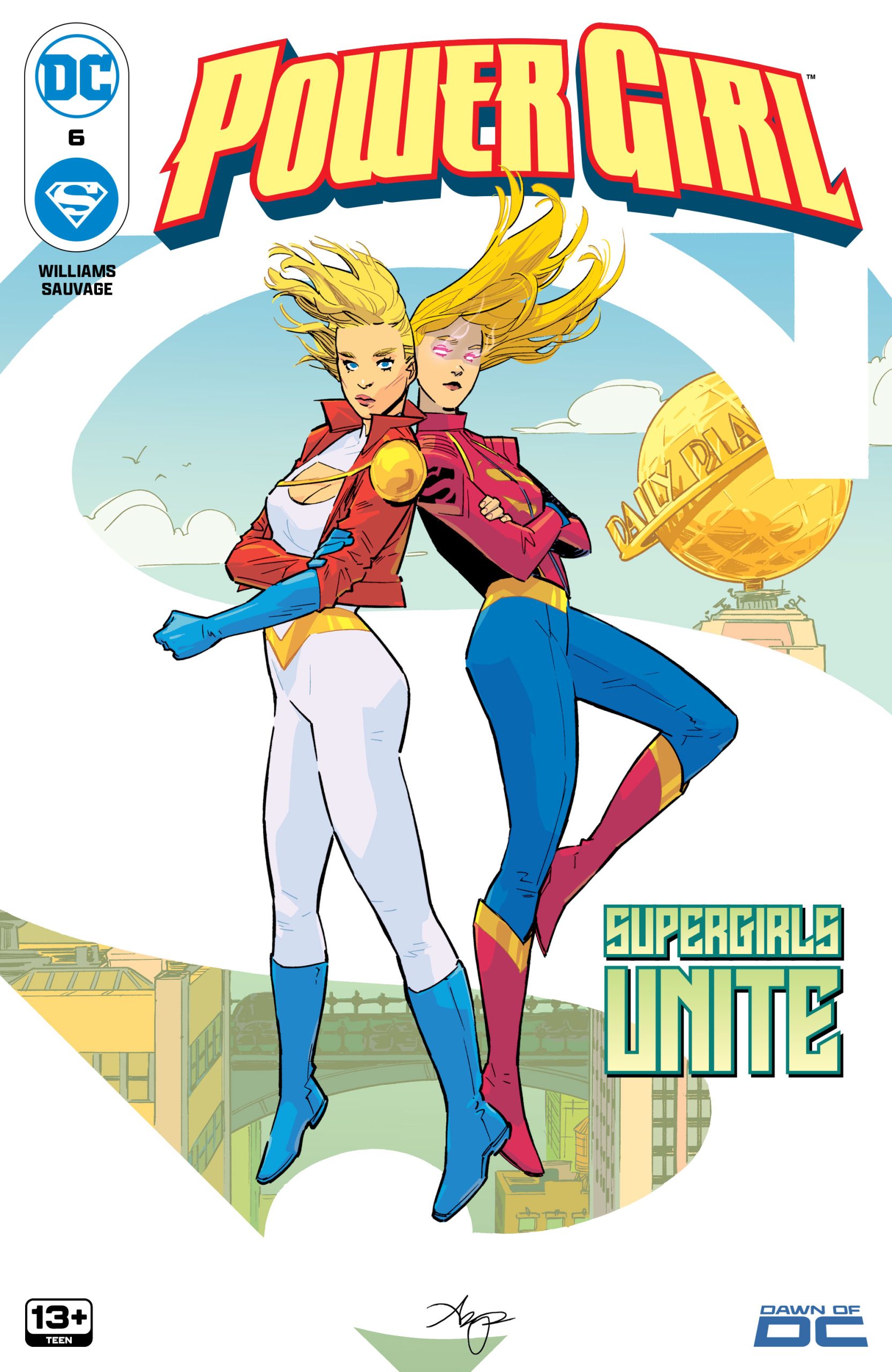 [Editor’s Note: This review may contain spoiler]
[Editor’s Note: This review may contain spoiler]
Writer: Leah Williams
Art: Marguerite Sauvage
Colors: Marguerite Sauvage
Letters: Becca Carey
Reviewed by: Matthew Lloyd
Summary
Power Girl and Supergirl team up to investigate the disappearance of a number of people and the relationship to a new drug making the rounds- Avalon. It’s not quite what they expect.
Positives
The best thing about Power Girl #6 is the variant covers by Dan Panosian and Brad Walker. These are two great depictions of Power Girl, despite featuring the current costume. Panosian wisely loses the jacket to draw attention to Power Girls arms. Clearly, this isn’t the Power Girl that’s actually in the comic itself. Unfortunately, one would have to spend extra to get both of these variants. Panosian also depicts Power Girl as an overall more physically imposing individual. Walker and Panosian both capture the inner PG as a strong, independent, confident character. Again, it’s unfortunate that the Power Girl inside the comic shares none of the physical or internal traits Panosian and Walker’s covers show.
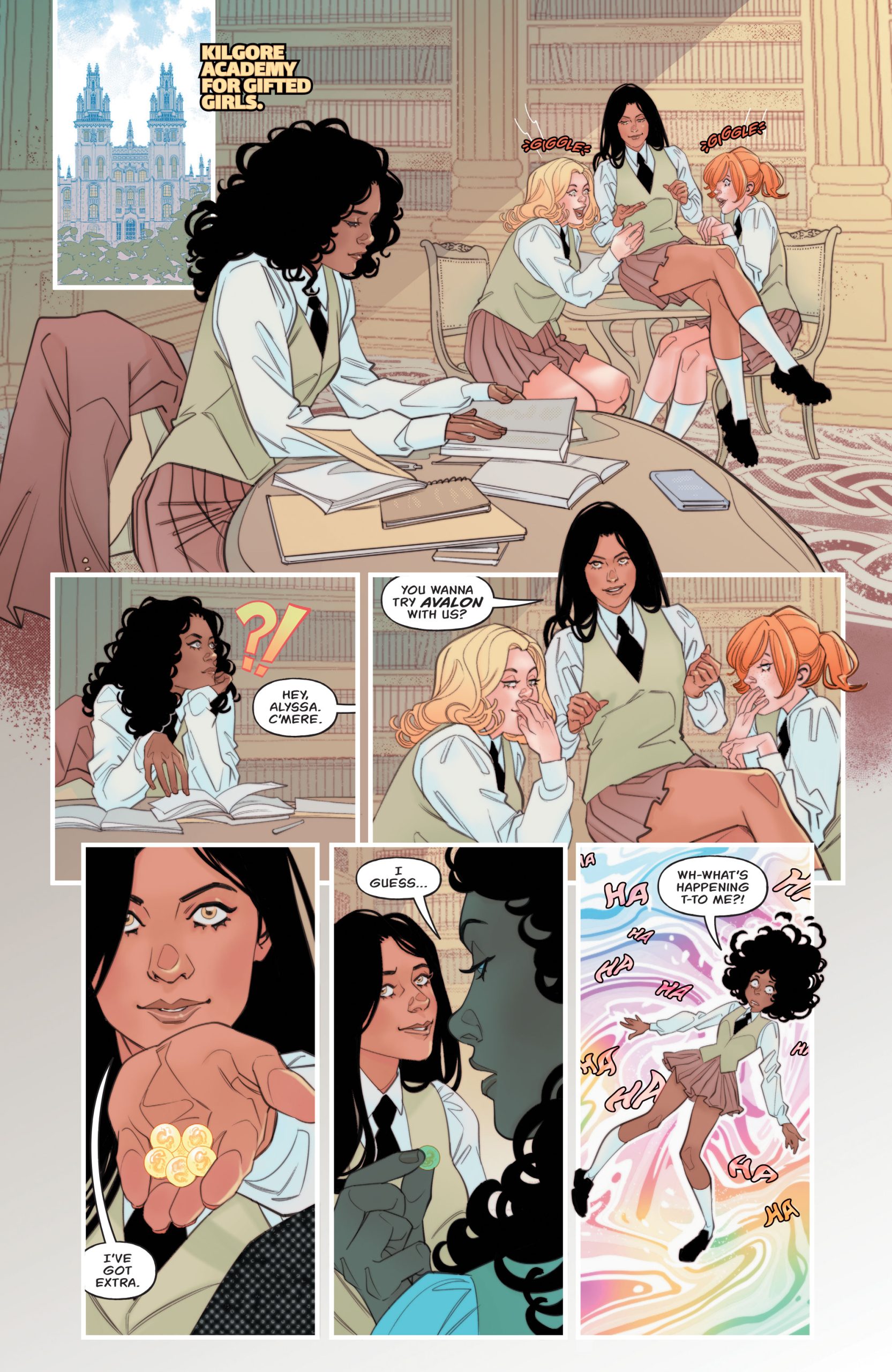
There’s an interesting idea in this comic that Williams presents of a “drug” that transports the user to an alternate dimension. Oddly, it seems like it might fit better in a My Little Pony story than Power Girl, or indeed any DC Universe comic. If anything, it doesn’t seem out of place for one of the more whimsical Supergirl stories from the Silver Age save the inclusion of the drugs. It’s surprising that Williams is able to connect Streaky’s story in Power Girl #5 no matter how tenuously.
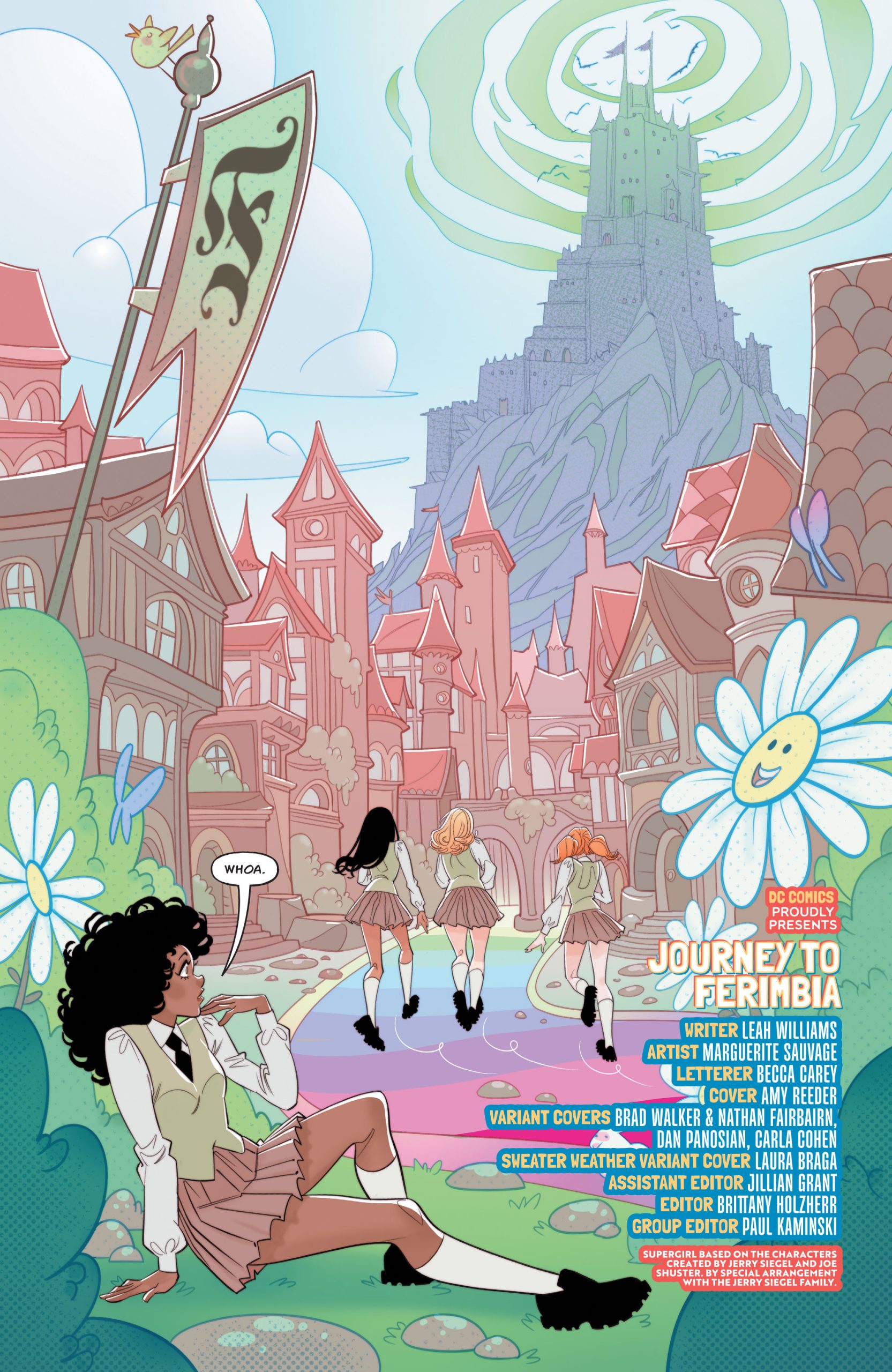
Eduardo Pansica, who drew the first four issues of this series has been replaced by Marguerite Sauvage who drew the Power Girl back ups in Action Comics and the Power Girl Special. Pansica’s style fits Power Girl better, but Sauvage’s art is definitely well suited to the playful world Kara and Kara enter in pursuit of the missing people. Sauvage actually changes her style a bit to reflect the difference between Ferimbia and the regular world. Her regular style would fit just as well, however…
Negatives
…the more cartoony approach fits too well with the tone of the script so that any sort of gravitas is lost. There’s no irony here, either. It’s hard to feel the weight of the situation outside of the facts we are told in the narration and dialogue. For a character who’s been emasculated in this current incarnation, Power Girl #6 takes all the oomph out of her adventure as well. The story arc in issues #1-4 at least felt like there was something significant happening. This first chapter in this new arc is bereft of any seriousness.
The characterization is minimal and subtle. Williams may do a nice job depicting the relationship between Kara and Kara indirectly, but it leaves the reader with the impression that Supergirl is more competent, more experienced and more capable than Power Girl. We are used to this characterization of Power Girl by Williams, but it’s still difficult to consume. Pretty sure Supergirl even blames Power Girl for getting them stuck in a mess.
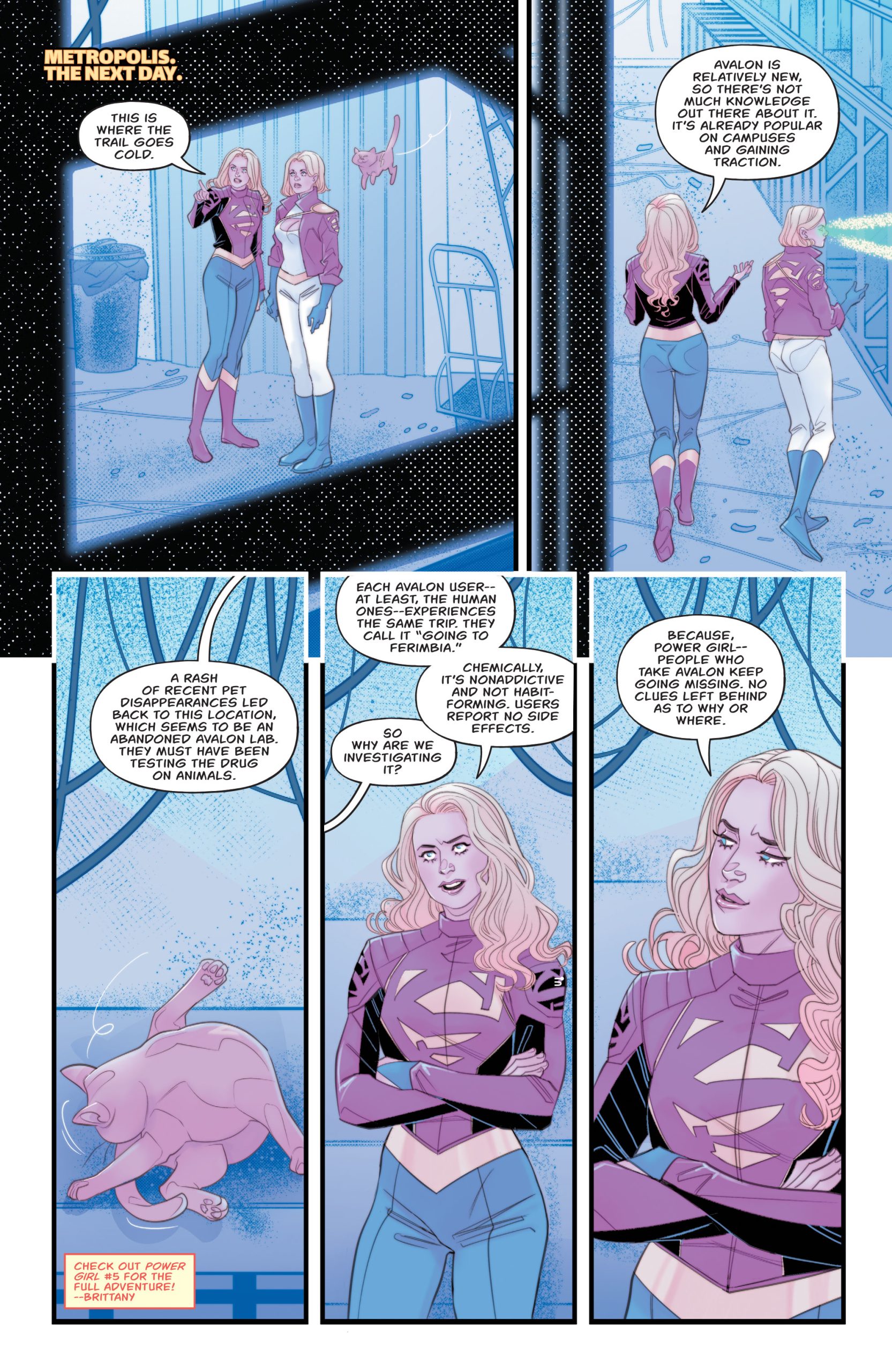
When Williams was interviewed about taking this series on, one of the things she stated was that she wanted to “definitely wanted to showcase what sets her apart from the rest of the Super-family; not only in her expertise, but how different her personality is. She’s kind of a wild card comparatively because her experience and background differ so greatly [from the others].” Six issues in it’s clear that what Williams has envisioned about Power Girl is the complete opposite of every other incarnation of Power Girl. It’s obvious now that this won’t change until someone (an editor? someone on the internet?) explains to Williams that she’s got it all wrong. Supergirl is not the more confident, experienced and capable character, Power Girl, Karen Starr is.
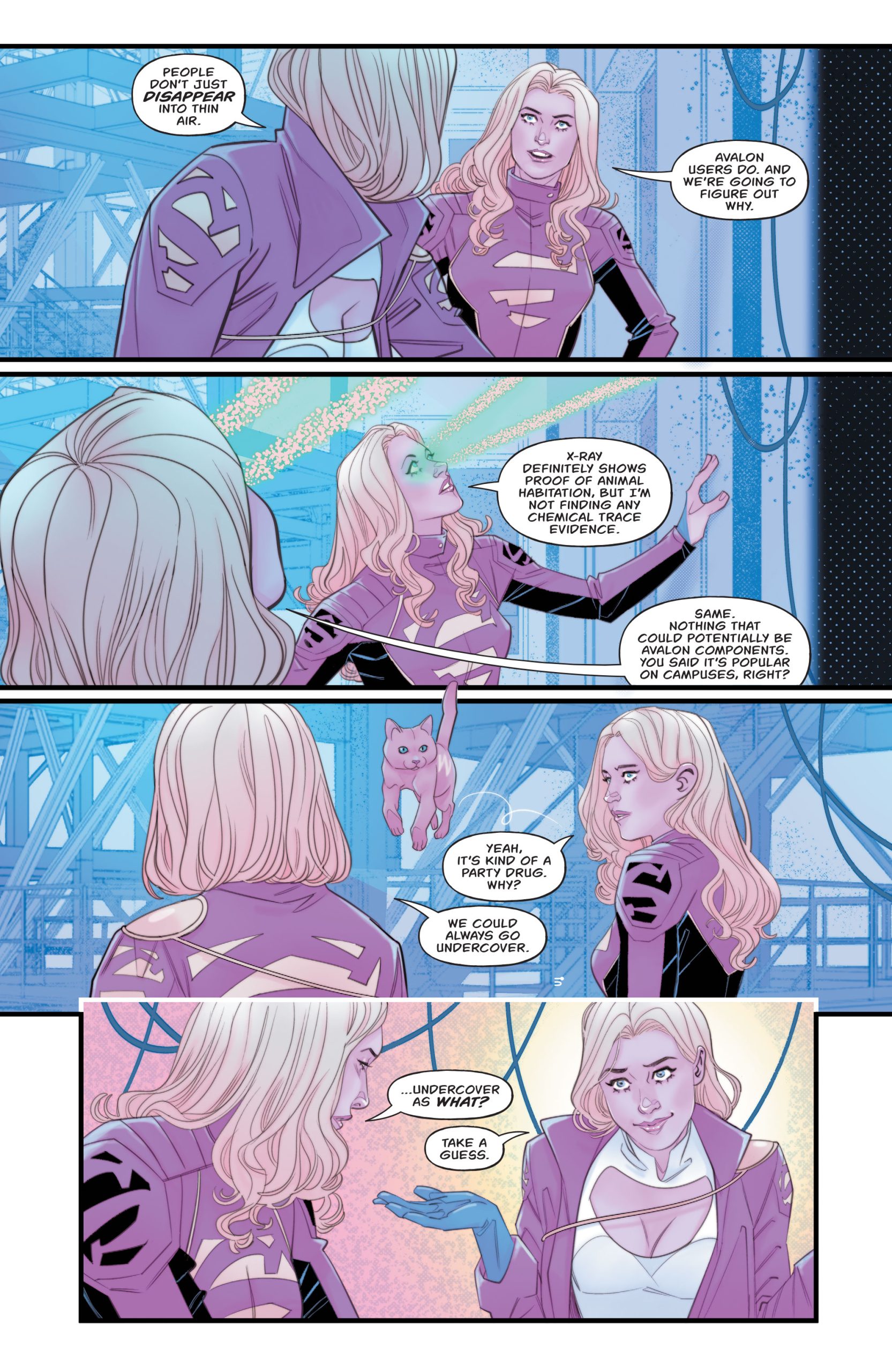
Verdict
I’ve finally figured out who this series is for. It’s definitely not for existing fans of the character who supported her in her first nearly 50 years of existence. As Williams doesn’t understand anything that happened to the character before she started writing her, Williams has invented an approach. It’s for young girls (and boys?) who feel insecure and like they don’t fit in anywhere. That’s all well and good, but there’s no reason to reinvent Power Girl to fit this approach. The first five issues have been an awful experience and Power Girl #6 doesn’t really change that. This is probably the worst issue of the series, friendship is not magic in this case.
